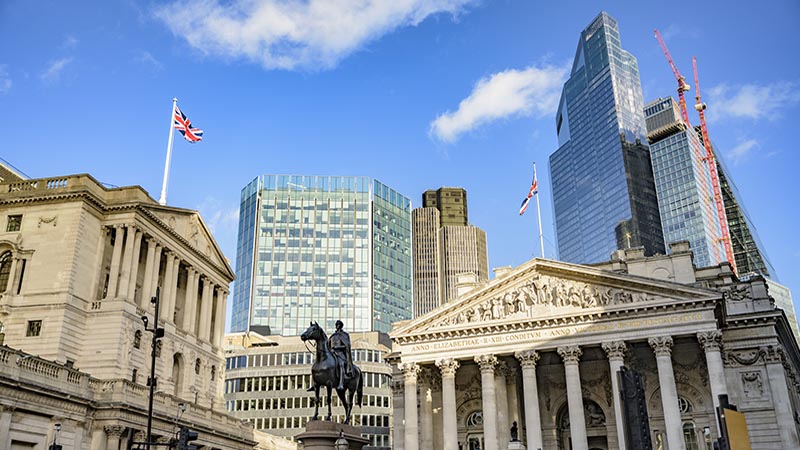The Bank of England has raised the base rate by 25 basis points to 4.25% after inflation came in above forecasts.
Turmoil in the banking sector had raised the possibility Andrew Bailey and his MPC colleagues may hold rates flat at this meeting. This was not the case though and just as in the United States, determination to push inflation down trumped fears over the health of banks.
If the decision was marginal before the CPI reading of 10.4%, it appears that development was more than enough to keep the MPC focused on its inflation mandate.
Notably though, the decision was not unanimous, with only seven of the nine strong committee voting for the hike.
Today’s rise is expected to be the last before the central bank either pauses or ends its hiking cycle, but that will depend on inflation falling as forecast.
“After Tuesday’s inflation figure, the Bank of England had no choice really but to raise interest rates today,” noted Richard Carter, head of fixed interest research at Quilter Cheviot.“It will have been somewhat spooked by inflation rising, and it makes the prediction that inflation will stand at just 2.9% by the end of the year even more difficult to achieve.”
“However, the contagion in the banking system appears to have been contained for now, giving it some cover to raise rates today without being overly concerned it will tip the balance for any banks that are under duress. Furthermore, the UK banking system has much more stringent regulation and capital adequacy rules so the system should be able to handle this rate rise.”
Karen Ward, chief market strategist for EMEA at J.P. Morgan Asset Management, commented: “It is possible that recent concerns in the global banking sector will serve to tighten credit conditions, but that is not guaranteed. As with the ECB last week and Fed last night, the Bank of England acted on the information it had today which is that the economy is still resilient, inflation is uncomfortably high and broadening, and wage growth is at a level that is inconsistent with a 2% inflation target.”
“We are concerned that the Bank will find itself outside of the central bank herd in the second half of the year,” Ward continued. “This is because the persistence of inflation appears more worrying in the UK than elsewhere, reflecting the fact that the combination of Brexit, the pandemic and an energy crisis appears to have done more lasting damage to the supply side of the economy.”
Vivek Paul, UK chief investment strategist at the BlackRock Investment Institute, sees the hike as reflecting the determination of central banks to meet their goal of bringing down inflation.
“The increase follows the Federal Reserve and ECB rate rises in recent days, and shows why we’re in a new regime; central banks will not ride to the rescue with rate cuts at the first sign of growth concerns, as we’ve been used to for a generation,” he said.







